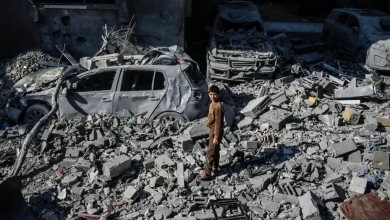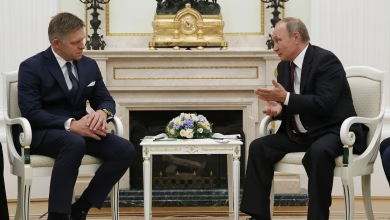Lebanon Welcomes First UN Aid Plane Amid Israel Conflict

- A UN plane brought 30 metric tonnes of medical supplies to Beirut.
- Israeli strikes have killed over 1,100 people and displaced 1 million in Lebanon.
- Minister Firass Abiad highlighted the aid's importance for hospitals.
- The violence adds to Lebanon's existing economic and political struggles.
An airlift organized by the World Health Organization (WHO) landed in Beirut earlier today, delivering 30 metric tonnes of vital trauma and surgical supplies. The shipment is enough to treat tens of thousands of individuals in Lebanon, which has been facing a humanitarian crisis due to escalating violence. WHO’s regional director, Hanan Balkhy, announced on the social media platform X that additional flights are scheduled to arrive later today and tomorrow, carrying more trauma supplies, cholera supplies, and mental health resources.
The backdrop to this humanitarian aid is the ongoing Israeli airstrikes that have intensified since September 23. These strikes, aimed at Iran-backed Hezbollah militants, have led to a significant toll on civilians, with reports indicating over 1,100 fatalities and hundreds more injured, according to an AFP tally of official figures. The violence has created a dire situation, displacing more than one million people from their homes in Lebanon, a nation already grappling with profound economic and political crises.
Health Minister Firass Abiad was on-site at the Beirut airport to oversee the arrival of the aid. He emphasized the importance of this first shipment, stating, “We are receiving the first shipment out of many.” This initiative is particularly critical as hospitals across Lebanon are overwhelmed with casualties resulting from the ongoing conflict. The trauma kits included in the shipment are expected to play a crucial role in supporting these hospitals as they treat the influx of injured individuals.
The humanitarian crisis in Lebanon has been exacerbated by the country’s ongoing economic collapse and political instability. The recent violence has further strained an already fragile health care system, making the timely delivery of medical supplies even more urgent. With hospitals operating at capacity, the arrival of aid is a significant relief for health care workers who have been struggling to meet the overwhelming demand for medical assistance.
The shipment was made possible through the collaboration of various organizations, including the WHO and the UN refugee agency (UNHCR), with funding provided by the United Arab Emirates. This international cooperation underscores the need for a coordinated response to the escalating humanitarian needs in the region.
As the situation continues to evolve, the WHO and other organizations are committed to providing ongoing support to Lebanon. The urgency of the crisis has prompted calls for additional aid and resources to ensure that health care facilities can adequately respond to the needs of those affected by the violence.
The ongoing conflict and humanitarian challenges in Lebanon serve as a stark reminder of the broader regional instability. The international community is closely monitoring the situation, and further aid efforts are expected in the coming days to address the growing needs of the population as the impacts of the violence become increasingly evident.






